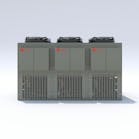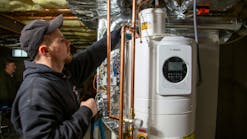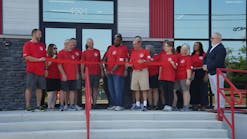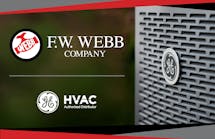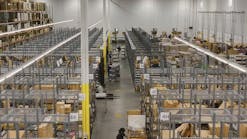Pretty heavy title, eh? I'll bet you can't wait to dig into this one, but before you do, a word of caution. You need to understand upfront that I am not a member of Greenpeace, an avowed “tree hugger” or even a vegetarian. Not that there's anything wrong with them, you understand, but if those are your leanings, I wouldn't want to offend your obvious sensibilities. Nevertheless, since I don't watch biased networks or read “earth” journals, that may be the reason I find the subject of HVACR and climate change to be of interest.
Of course, one cannot enter into a comparative evaluation without first acknowledging the formidable debate that rages over the entire question of whether (pun intended) the global climate is dramatically changing, or is it merely normal cyclical change that has been occurring for more than 10,000 years? There are obvious experts, or at the very least pundits and politicians, debating the issue from both sides, pointing fingers at energy production, manufacturing, refrigerants and even the gaseous emissions from sheep and cows.
It's even more interesting that the whole debate began initially as global warming, with examples such as the ice caps melting, ocean levels rising, polar bears losing their homes, and on and on. The one true educated meteorological expert, Al Gore (one of my true idols and a politician to boot), thanklessly brought the whole issue to the media and the world and, in the process, made millions of dollars (but we all know money has nothing to do with it).
Nevertheless, for a number of years, it was all about global warming, and then something bizarre began to happen … it started getting noticeably cooler and even frigid in numerous locations around the world. To many of us old people, it did not seem all that surprising, since through our lifetime, we had already experienced climate change. Who can forget the incredibly long, dark and frigid winters 50 years ago and those never-ending summers so hot you thought you'd die for a breath of cool air?
Of course, back then, we didn't have air conditioning everywhere, and for many, there was only the wonderful, dependable coal furnace: a marvelous bastion of technology that changed your home (not very quickly either) from freezing to so hot that dinner never got cold. Ah, those were the days when men were men and women were, too.
So as global warming seemed to be coming into question almost overnight, the “greenies,” the media and the government stopped referring to it by that term and instead began speaking of climate change. And what a relief that was! Up until then, the future of the world was fully in favor of the air-conditioning manufacturers and contractors, and I personally never heard any of them arguing against it. But the switch to climate change gave the heating equipment manufacturers and contractors a future, too. Hallelujah! Now we have a happy bunch of people in our industry out there buying ski chalets and snowmobiles.
You may have noticed that I did not mention the heating and air-conditioning distributors. And for good reason, since we all know they were just sitting back, watching their inventories and waiting to see what was going to happen as the debate developed. I happen to know for a fact that not one HARDI distributor member increased its air-conditioning equipment inventory because of global warming, in spite of intense pressure from manufacturers to do so.
Now that the HVACR industry is back in balance and the Copenhagen Climate Conference is over, one would conclude that all is back to normal. Not so, my friends. The climate change dispute continues as the world debates how the United States can redistribute its wealth to help under-developed countries do what we have been doing for 100 years, raising more sheep and cows. But I'm not cynical.
Don Frendberg,
Executive vice president / COO
